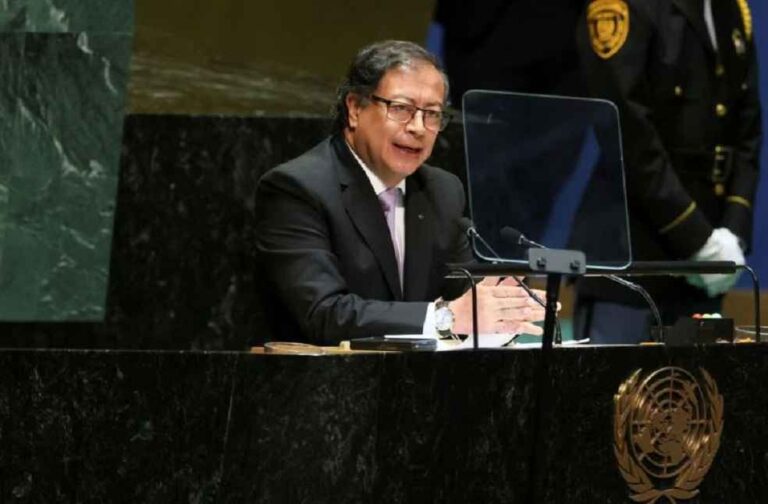Colombia has enacted a temporary halt to coal exports to Israel, prompted by an alliance comprising Palestinian organizations, Colombian trade unionists, and indigenous groups. This decisive action, announced by Colombian President Gustavo Petro, aligns with the International Court of Justice’s directives demanding Israel cease its operations in Rafah.
The suspension traces back to advocacy by the Palestinian Institute for Public Diplomacy (PIPD) and Sintracarbon, Colombia’s principal coal miners union. Their concerted efforts culminated in a June correspondence to President Petro, urging a cessation of coal exports to counter what they term ‘ongoing genocide.’ The correspondence sharply criticized the role of energy supplies in prolonging severe crimes and accused global governments of complicity through inaction.

Spearheading the embargo initiative is Global Energy Embargo, a coalition that blends Palestinian groups with climate and indigenous activists, advocating for a comprehensive energy embargo against Israel. This group has successfully engaged global allies to isolate Israel energetically, illustrating the intersection of human rights and environmental advocacy.
Sintracarbon has been instrumental, linking coal exports to the historical support Israel provided to Colombian paramilitaries in the 1980s, known for assassinating trade unionists. Indigenous communities, adversely affected by mining in Colombia’s north, have also voiced opposition. They condemn the environmental and social repercussions of operations by companies like Glencore, which controls the vast majority of Colombian coal exports to Israel.
The economic consequences of this ban are serious, considering Colombia supplied 60% of Israel’s coal in 2023. According to Ynet news, Israel’s search for alternative, albeit costlier, sources has led to preliminary agreements with South Africa and Russia.

This campaign reflects a broader trend of reevaluating international relations through the lens of human rights and environmental sustainability. Following Colombia’s example, Turkey and the Maldives have enacted similar measures against Israel. The coalition’s plans include extending their advocacy to South Africa and Brazil, aiming to halt their coal and crude oil exports to Israel, respectively.
President Petro’s decision, a reflection of his leftist platform, marks a transformative phase in Colombia’s international stance, epitomized by his stark proclamation: “If Palestine dies, humanity dies.”
TRADE WORLD | Dubai-Morocco Boost Trade with New Economic Deals



